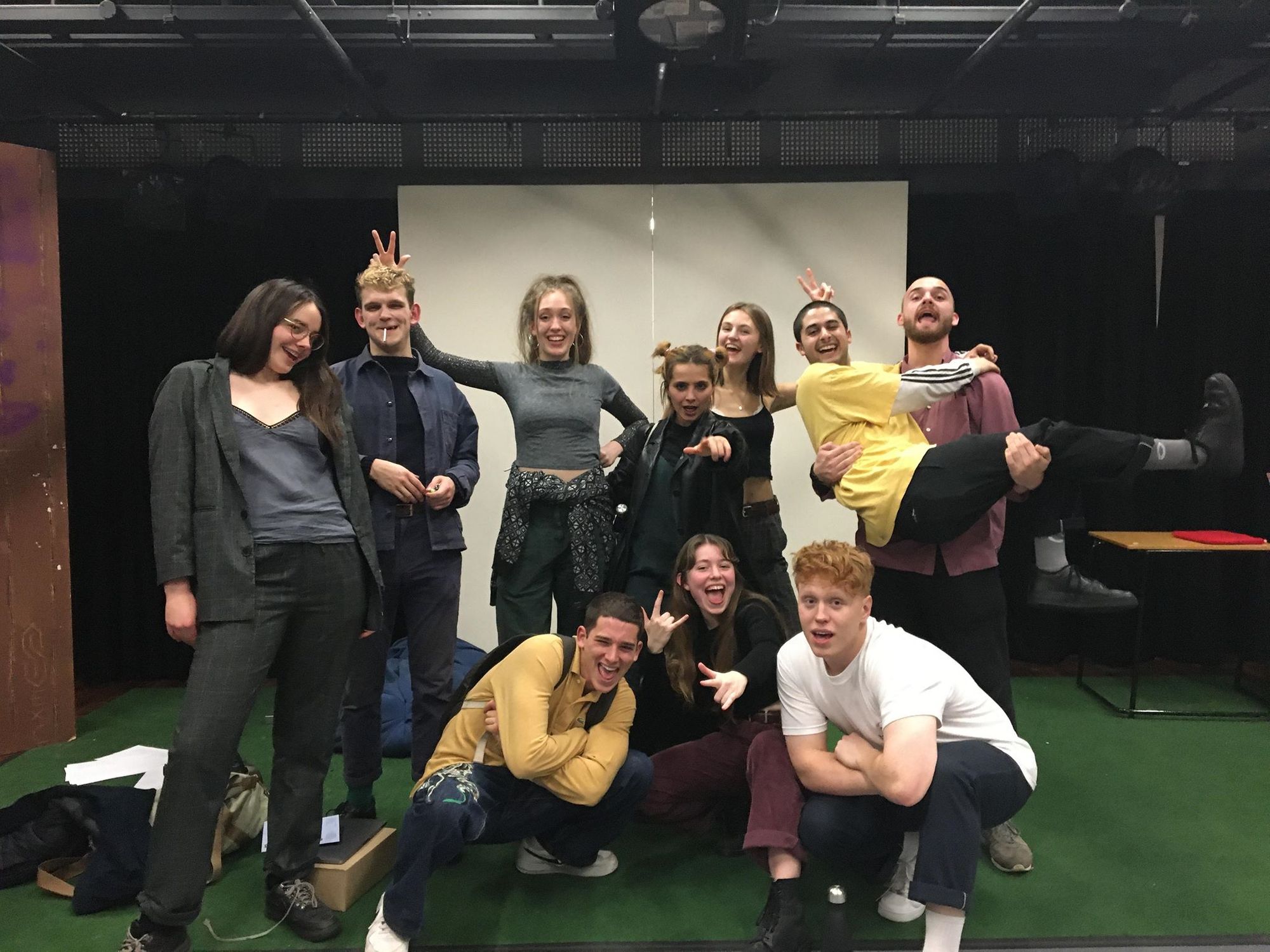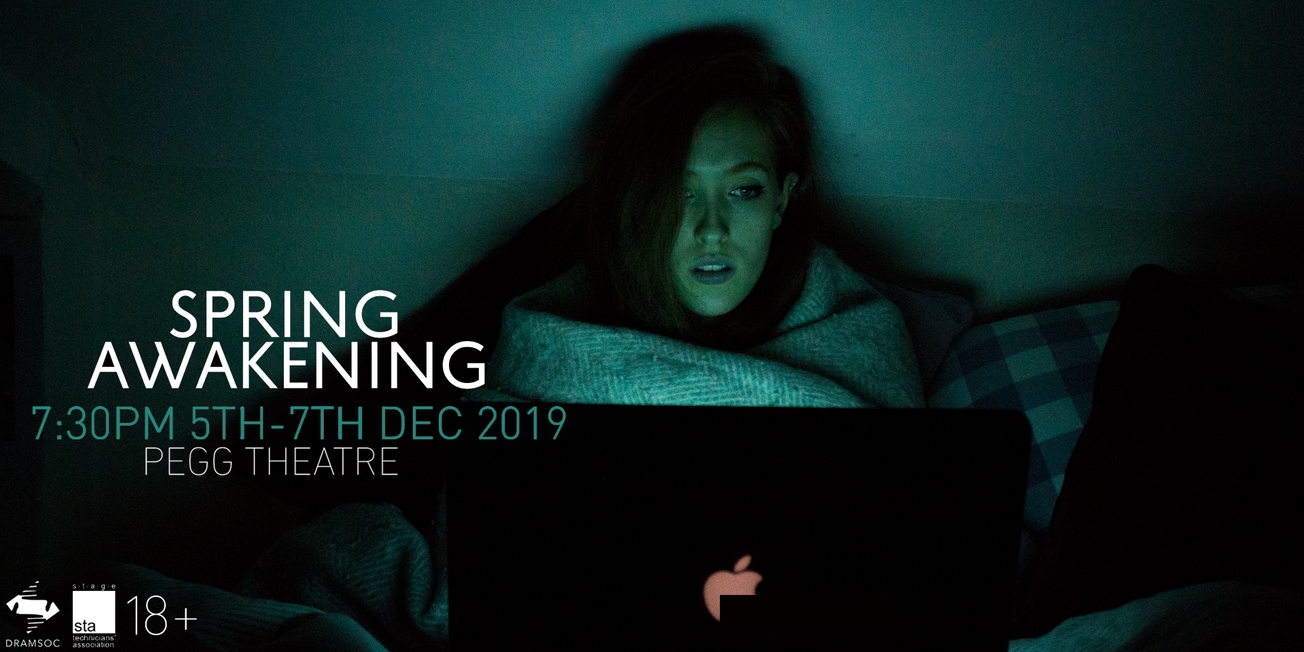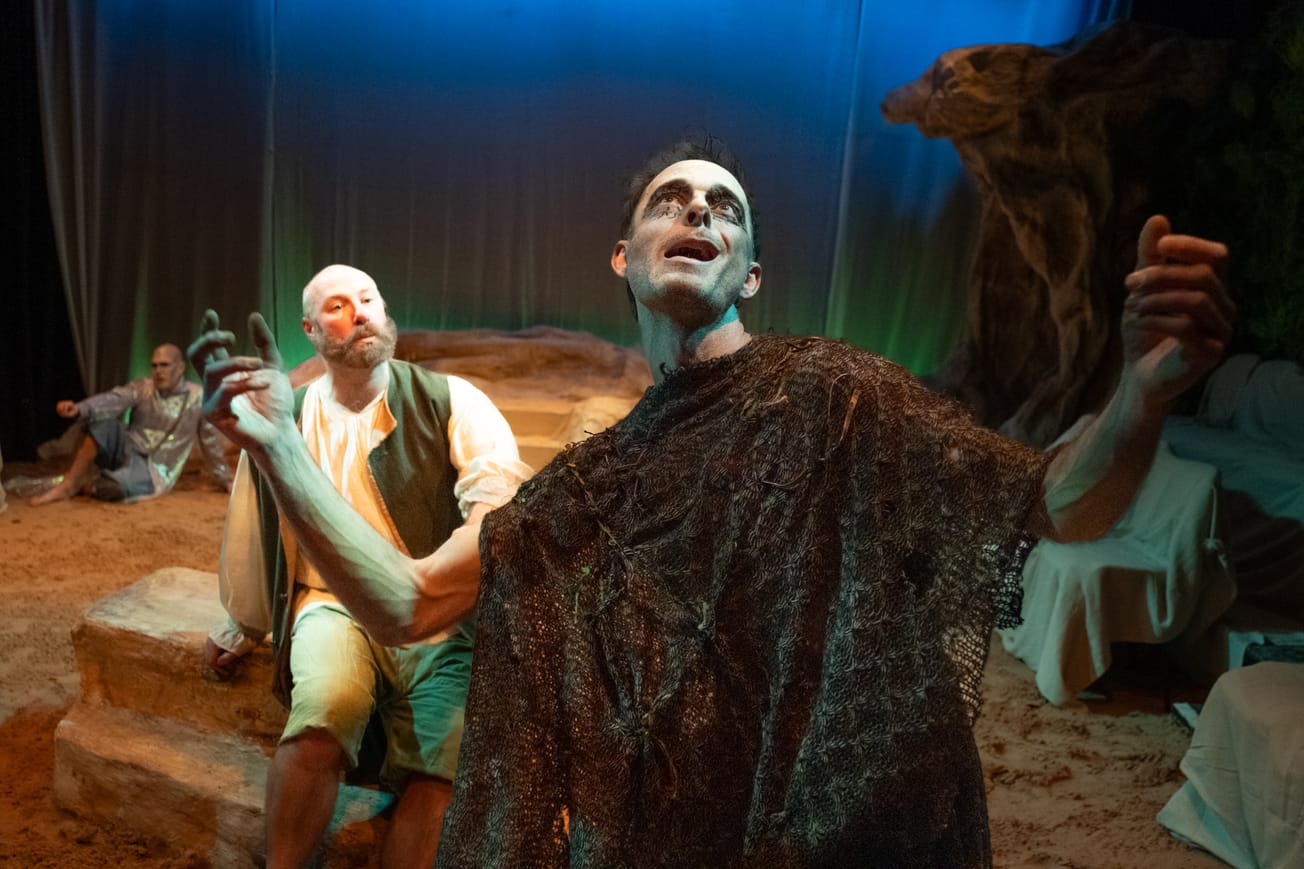By Ellie Brown, News Subeditor
DramSoc’s production mostly overcomes the limitations of its source material through innovative staging and an excellent cast, resulting in a show that is both entertaining and thought-provoking.
Trigger warning: this review contains references to suicide, mental health issues, sexuality, pornography, abortion, child abuse, and rape. It also contains spoilers for the play.
It’s a Thursday night. We, the audience, are sat in the SU’s intimate Pegg Theatre, having just heard from the play’s director that we can leave at any point in the evening if we need to. There’s a tension in the air – we know the play is about to start, and are mentally preparing ourselves for the shocking scenes the programme promises.

The lights go down and a spotlight appears, revealing a boy on a chair, in school uniform. He has headphones on and is listening to a description of the Venus Di Milo – innocent enough, right? Suddenly his eyes close. His hands creep down his trousers and he starts, you know…
Some people in the audience snigger, while others don’t know where to look. The scene quickly finishes in a comic climax that may be too crude for some, but perfectly encapsulates the draw of taboo-breaking, boldly sexual Spring Awakening.
Originally written by Frank Wedekind in 1890, the play tells the story of a group of German teenagers whose burgeoning sexuality and philosophical questioning is sternly oppressed by their school and parents, with predictably tragic results. It was updated in 2014 by Anya Reiss, who kept the characters – including teenage protagonists Melchior, Wendla and Moritz – but adding contemporary references and streamlining the plot. Importantly, in Reiss’s version the parents and teachers of the three leads are played by their teenage friends, as if they are working together to act out something previously occurring offstage.
Changing character, often in the middle of a scene, and playing multiple roles at once would be challenging for any professional actor, but DramSoc’s stellar cast pull it off with aplomb. Praise must go to Hannah Wilkinson; using only her voice, posture and body language, she skilfully moved between Mrs Bergmann and Thea within the same scene, giving the audience the impression of two distinct and fully-rounded characters. Polly Wain and Angus Cooper did similarly excellent work as Melchior’s parents, completely different from their teenage selves, while Joe Samrai and Eilis Rooney brought great comic energy to their scene as the children’s teachers. Rooney in particular shone in a standout monologue as teenage runaway Ilse, delivered in real time via webchat and shown on the stage’s projector, and perfectly conveying the vulnerability and sadness behind her character’s surface confidence.
The show tackled serious themes sensitively, and I appreciated the artistic risks taken by directors
Yoav Besorai, Niamh Fraser and Will Bryant were just as good as the play’s three leads. Fraser was a believably naïve, frustrated and later traumatised Wendla, ably handling both comic and emotionally heavy scenes, while Bryant was a great foil to Besorai as the endearingly hapless Moritz. But the performance of the night belonged to Besorai, who anchored the play as the charismatic yet conflicted Melchior, in a naturalistic, unshowy turn which nevertheless had real emotional depth and power.
The staging attempted less realism than the acting, leading to an interesting contrast between the two. Changing settings were signalled only by the hanging up/removing of noticeboards by the actors, while the main set – the tennis court of the park where out protagonists hang out – didn’t change. Additionally, a projector on played video clips and images throughout the play, which added to the sense of a culture of information and distraction, and helped underline some of the points the play was making about the consequences of a sex-obsessed and often misogynistic popular culture. For example, videos of a prostitute character being beaten up on popular video game GTA raised whispers in the audience. The fact that all the technical changes went off without a hitch is a testament to the skill of the production team and unsung heroes of the drama world, the STA.
|The Tempest @ The Island ★★★★★
However, for me the show was unfortunately limited by its script. That’s not the fault of anyone involved, but it did mean that the play was not as moving or affecting as it could have been, relying on shock value and the inclusion of heavy themes without doing enough to earn them. Moments like Moritz’s suicide and Wendla’s death would have had more impact, I think, if the writer had done more to develop these characters. Additionally, some scenes seemed to come out of nowhere, while others went on for too long and ran out of steam despite the best efforts of the cast.
It perfectly encapsulates the draw of taboo-breaking, and boldly sexual Spring Awakening.
Overall, I was impressed by the thought and effort that went into this show. As well as being funny and well-acted, it also tackled serious themes sensitively, and I appreciated the artistic risks taken by directors Alex Jenn and Anna Fenton-Garvey. High quality student theatre, an enjoyable evening and all at a reasonable price – what more can you ask for?
If you are affected by any of the issues mentioned in this article, the numbers for Samaritans and Nightline are: Samaritans: 116 123 Bristol Nightline: 01179 266 266
★★★★
Featured image credit: DramSoc
Did you see Spring Awakening? What did you think of the performance?









